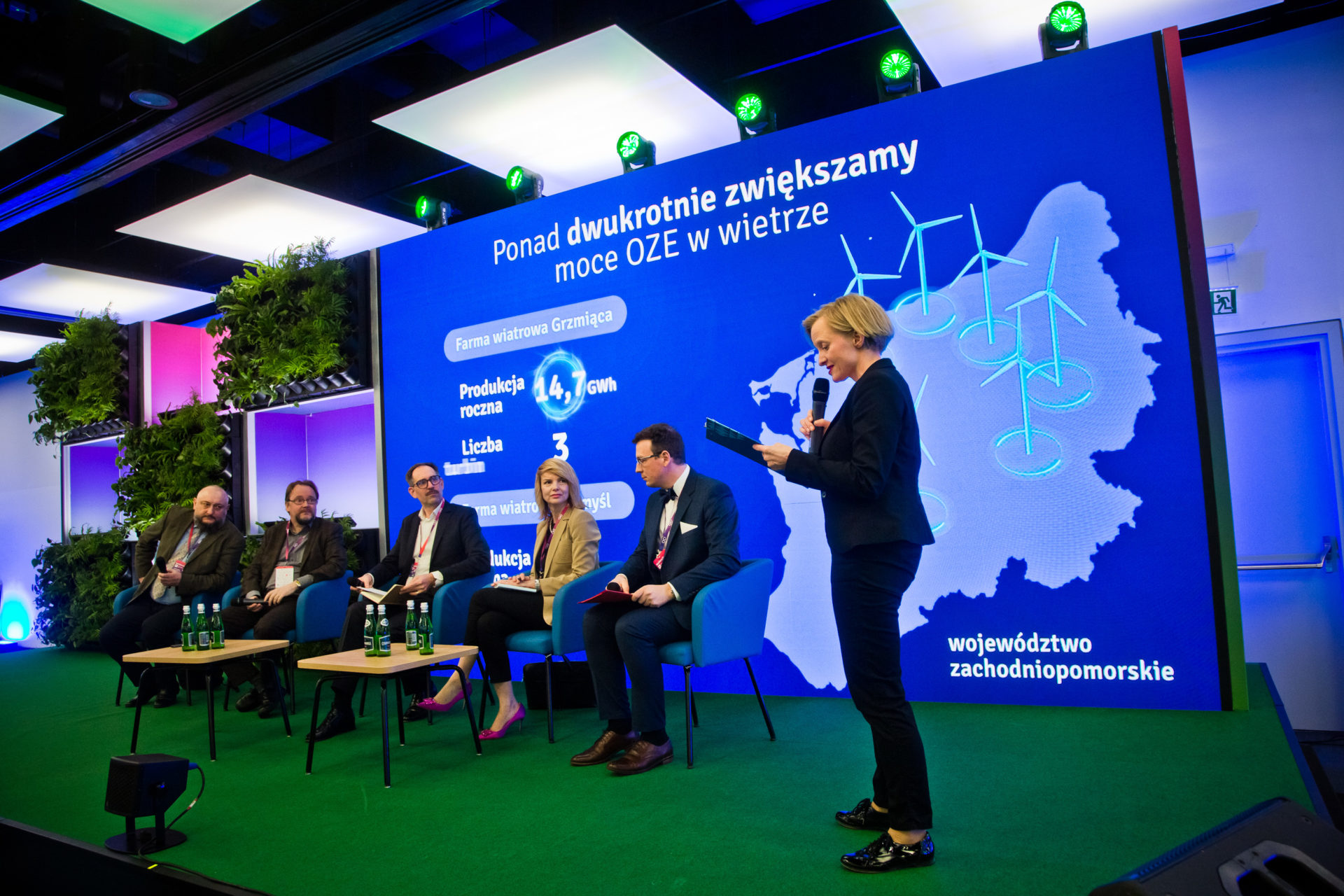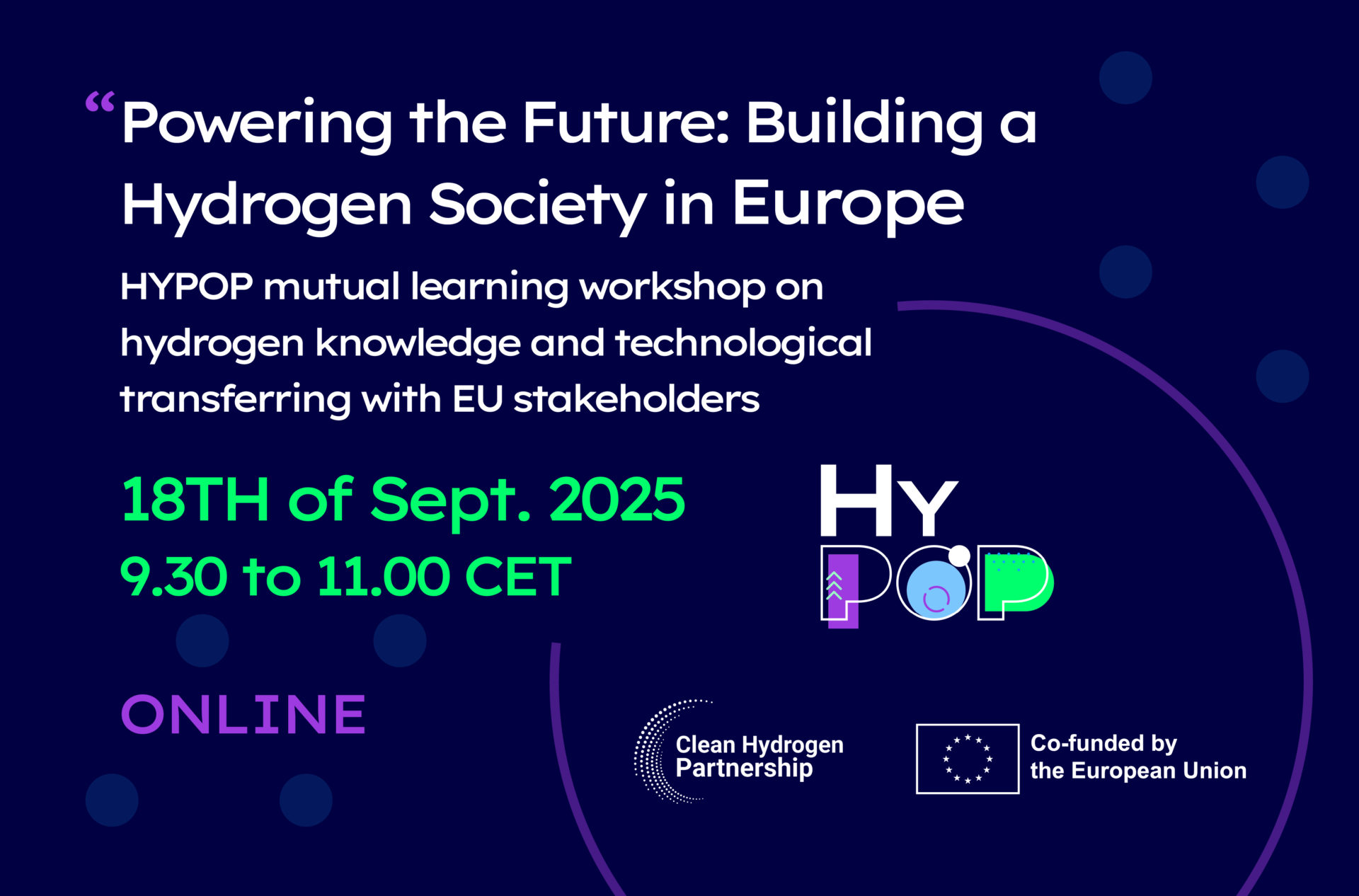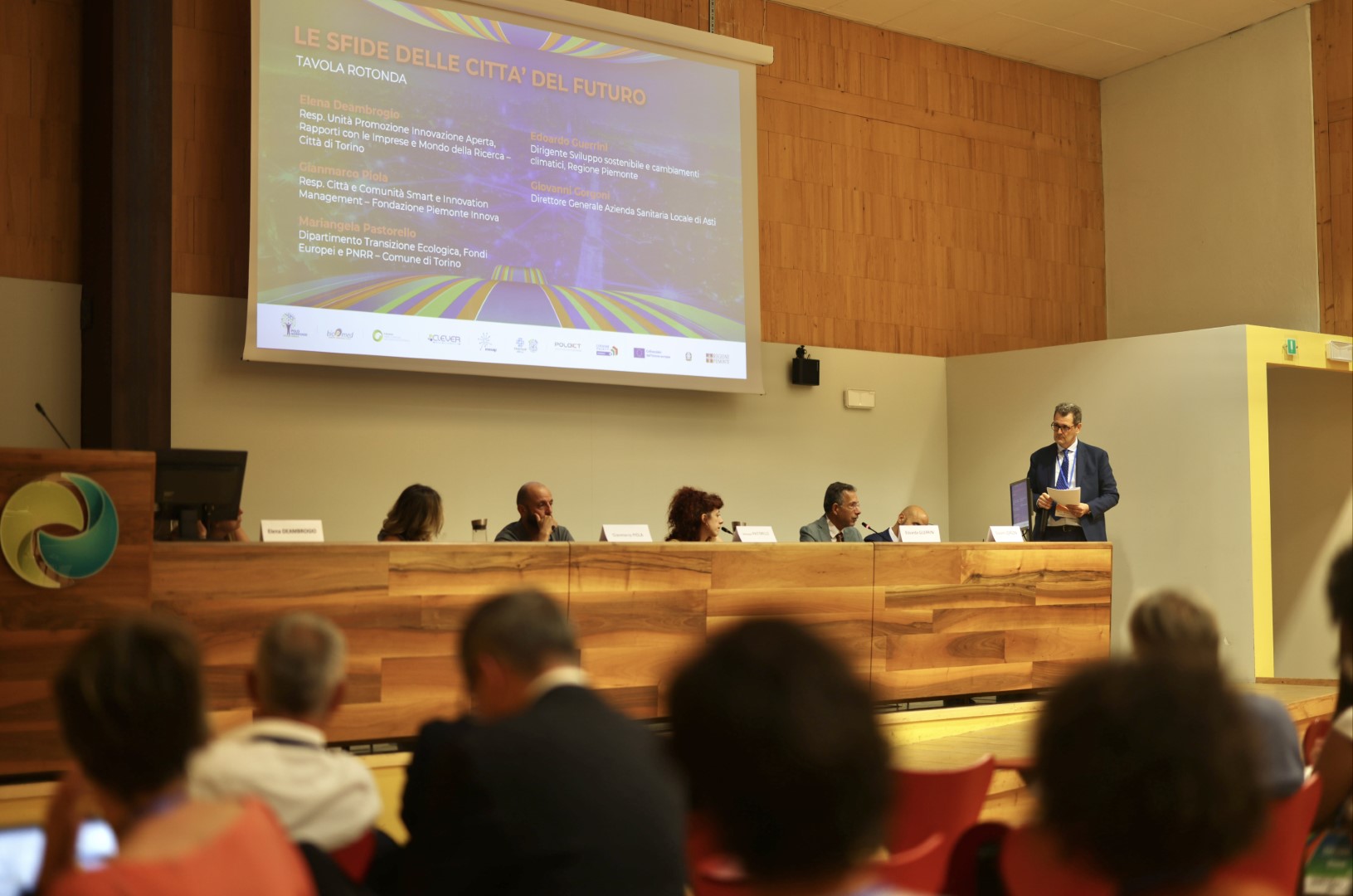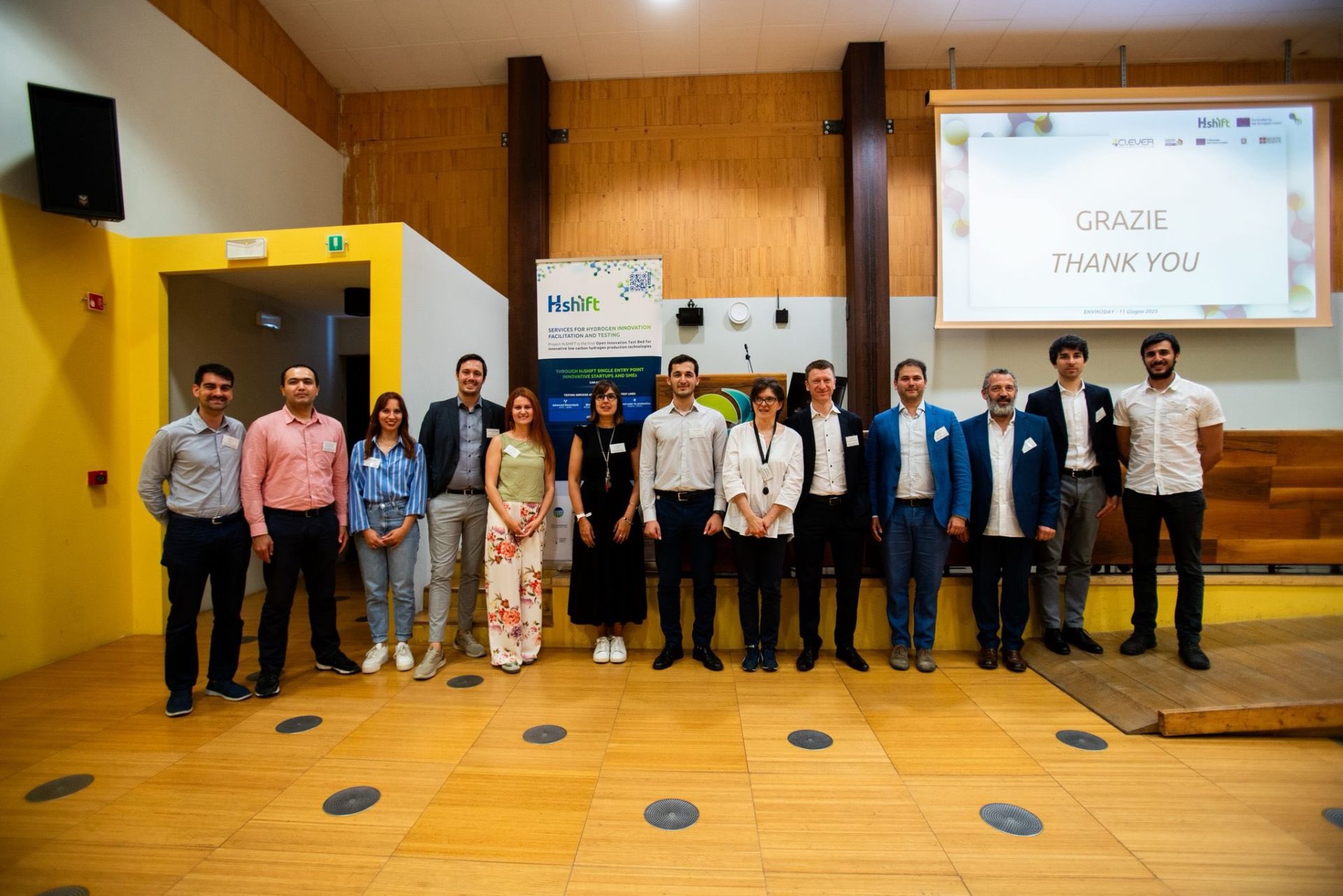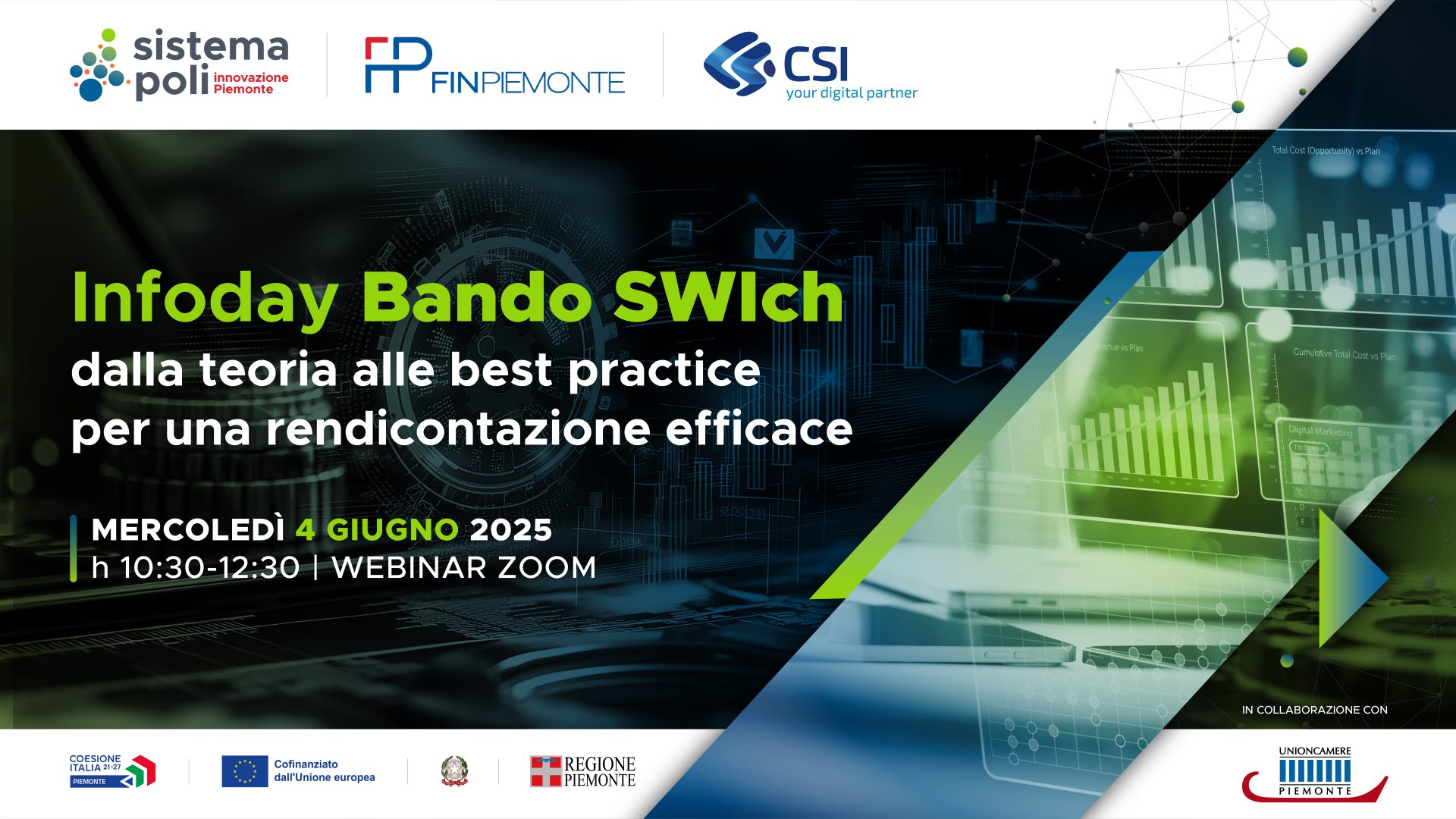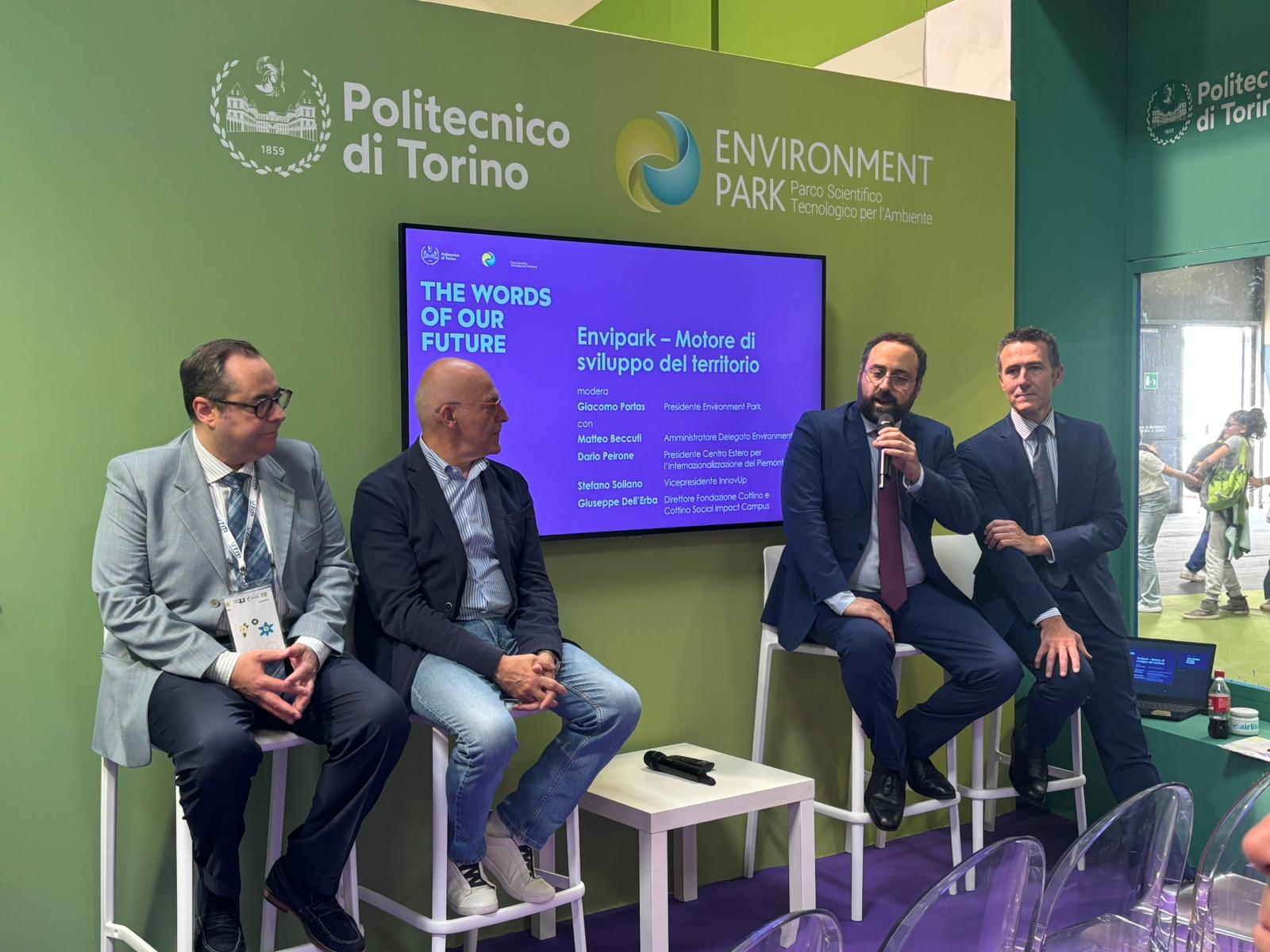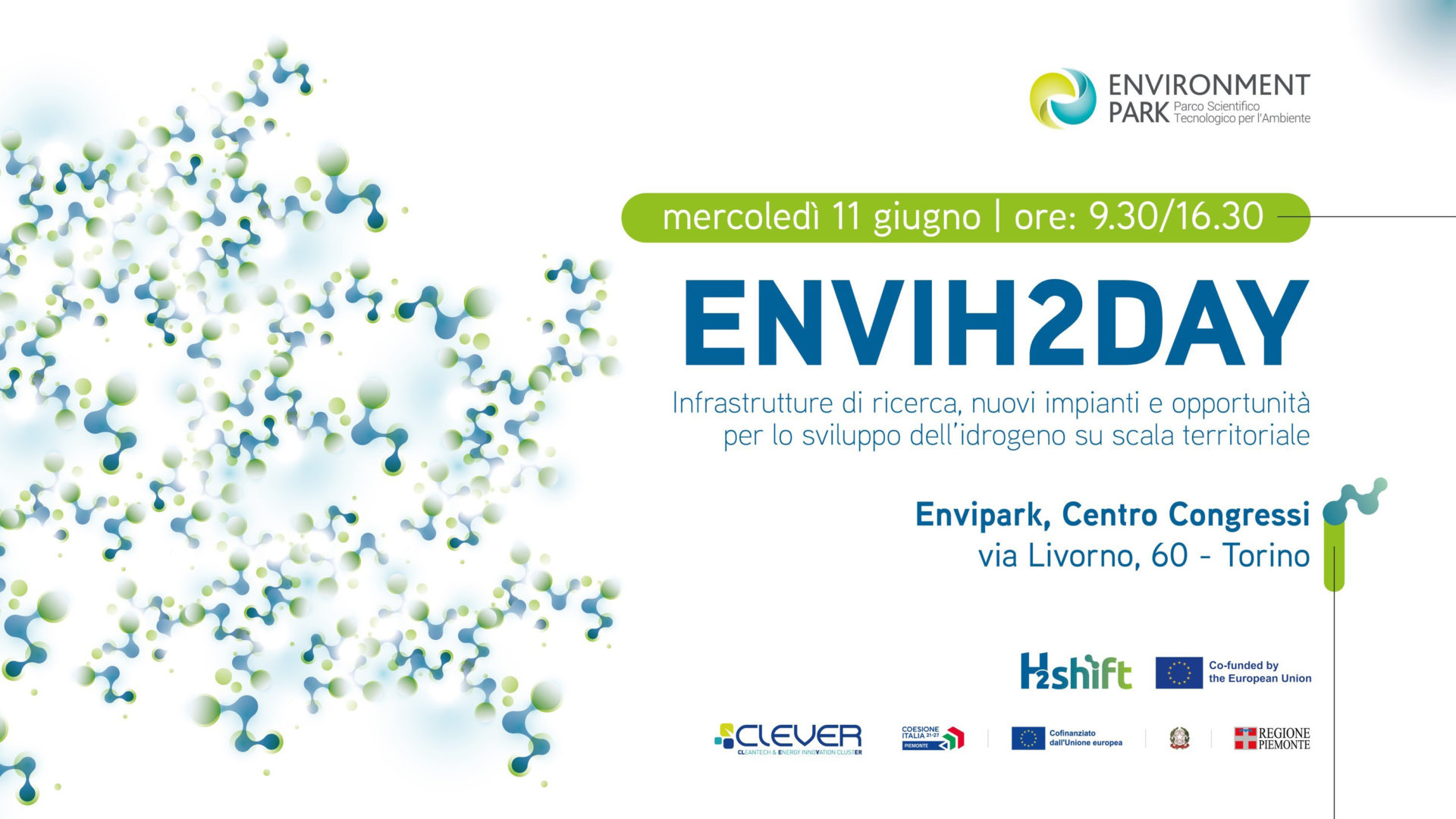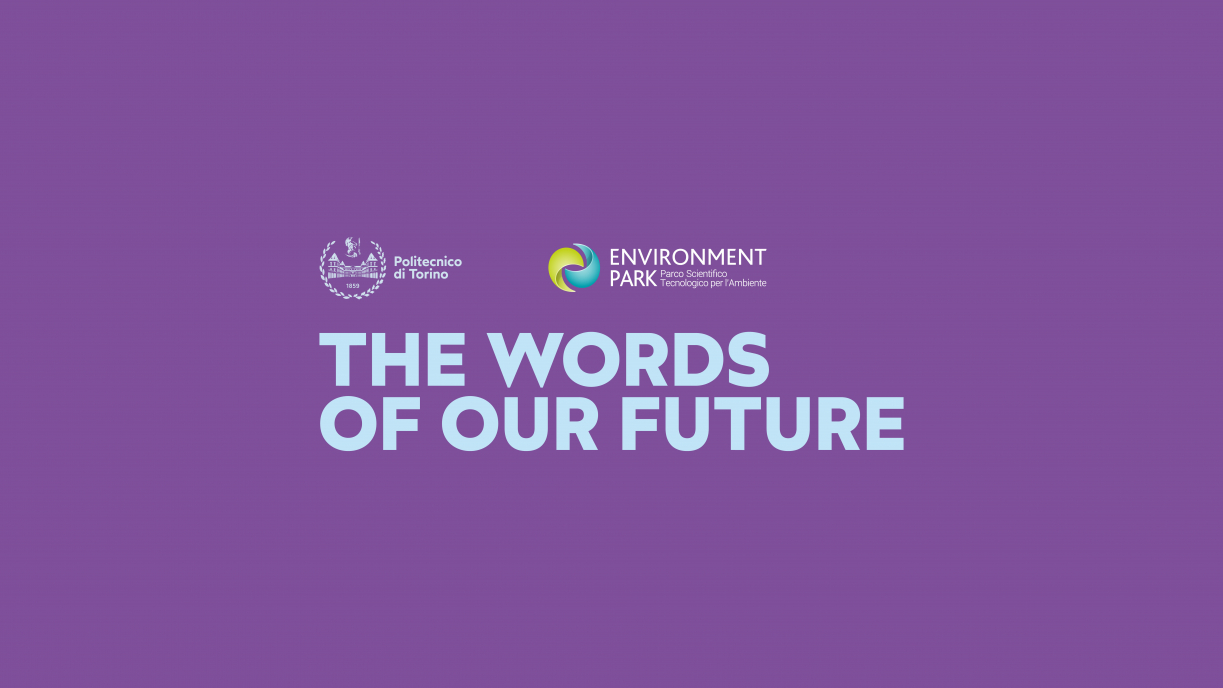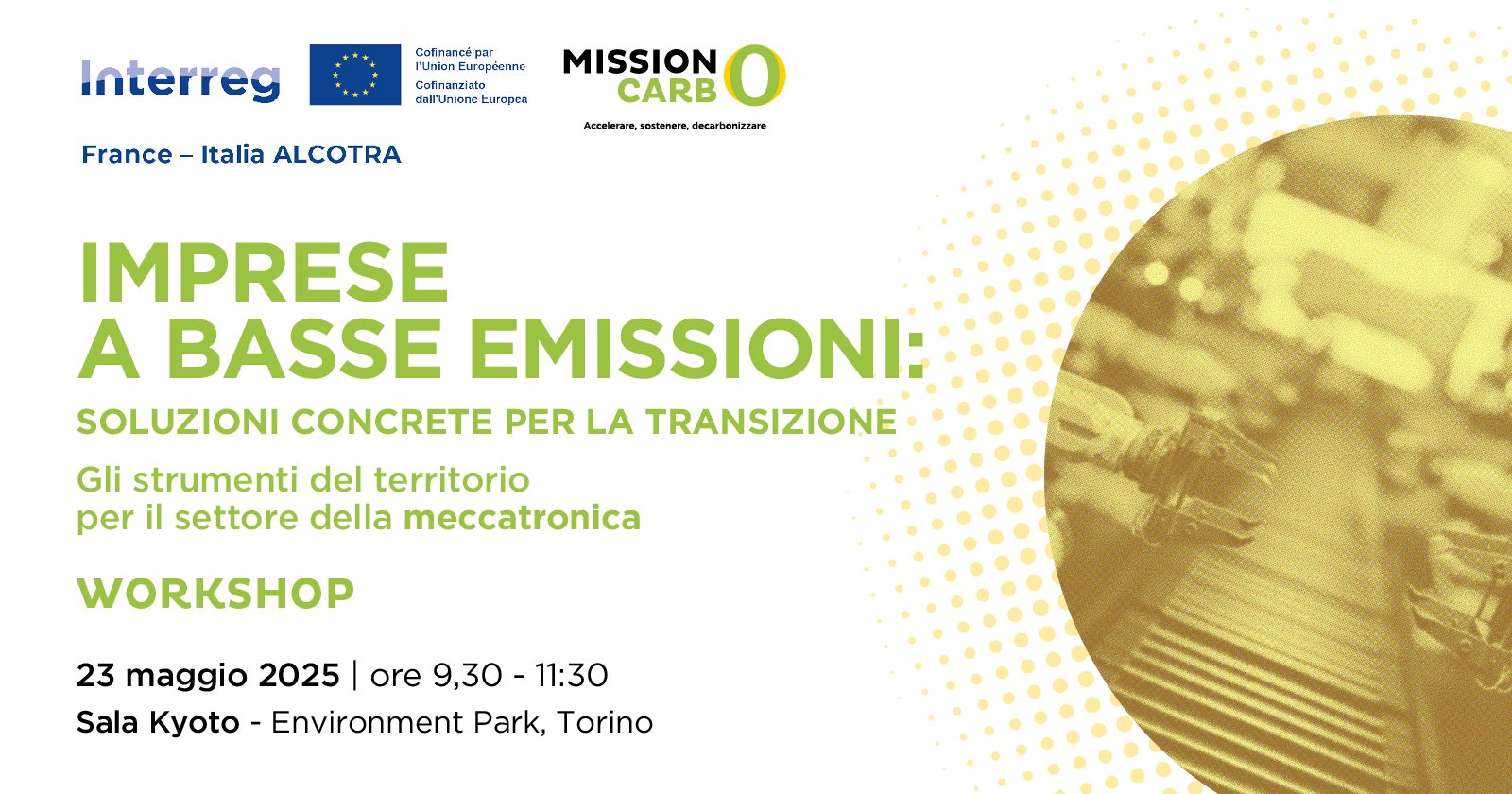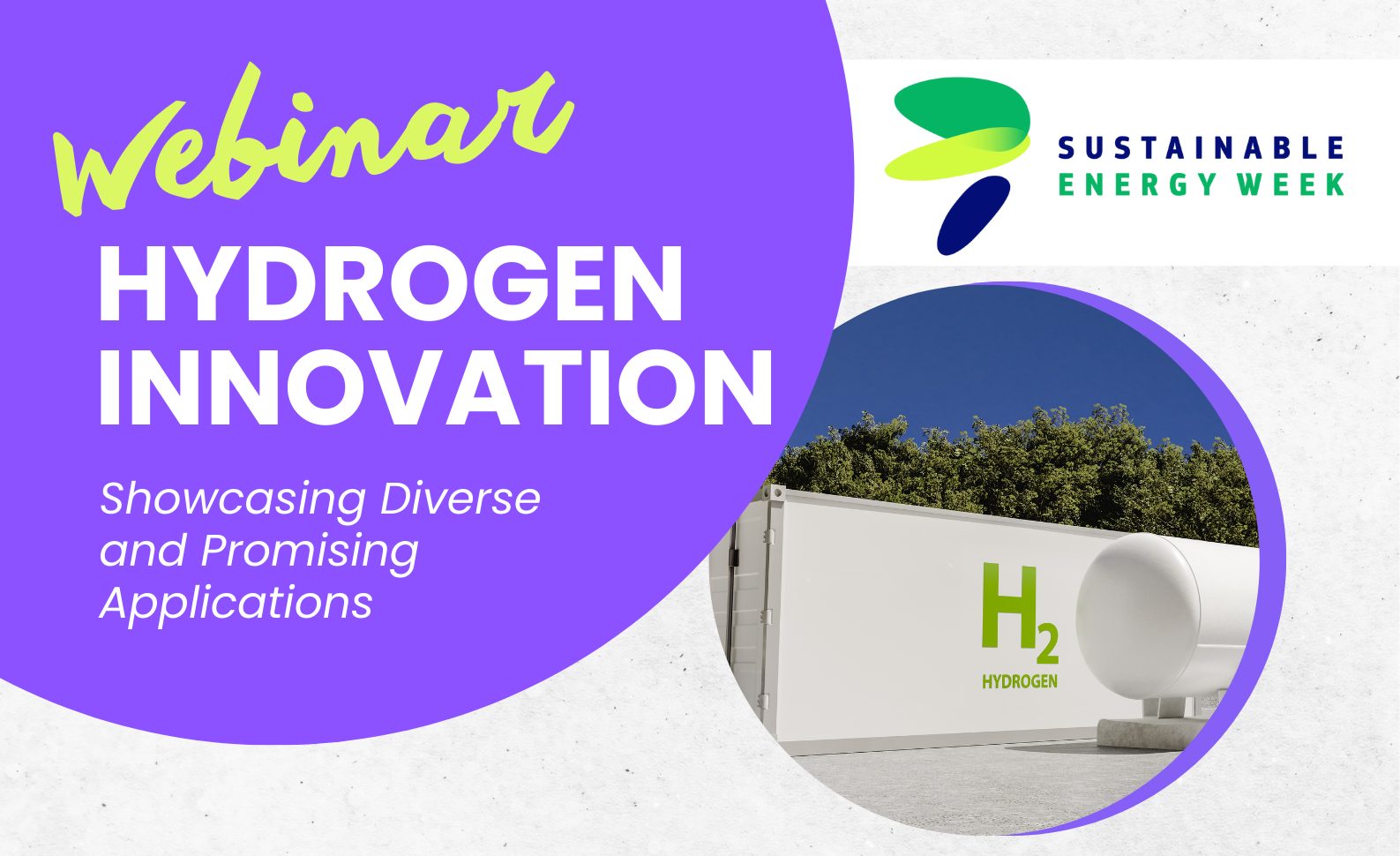The HYPOP project successfully hosted its final event during H2 Poland 2025 at the Poznań International Fair last April 2025. The event brought together stakeholders from across the hydrogen value chain to discuss critical issues surrounding the implementation and the acceptance of hydrogen technologies.
H2POLAND is the first trade fair in Poland and in Central and Eastern Europe entirely dedicated to hydrogen and decarbonization technologies. The event features forums that serve as key platforms for discussing the future of decarbonization and the European economy, with the aim of raising awareness and understanding of low- and zero-emission technologies. It is, therefore, a significant event for the HYPOP project, aligning closely with its mission to promote hydrogen knowledge and the exchange of best practices across Europe.
From April 7th to 10th, the entire Consortium participated in the international fair, showcasing the project at a dedicated stand within the Hydrogen Poland Association area. On April 9th, they also hosted a conference titled “Hydrogen Technology Adoption and Social Acceptance: Supporting Safety, Permitting, and Public Engagement for Hydrogen-Conscious Communities.” The workshop provided a platform for presenting HYPOP’s findings and share reflections on the work carried out so far on the connection among authorities, certification bodies, researchers, industry representatives, and hydrogen public acceptance.
Following the introduction by the Project Coordinator, Environment Park, HYPOP partners presented a comprehensive overview of the project along with recent achievements across various research areas. The Institute of Methods Innovation and Environment Park highlighted the project’s multidisciplinary approach to assessing public perception of hydrogen in Europe. This approach considers both public opinion and baseline knowledge of hydrogen technologies, as well as the role of public institutions in the permitting process for technology deployment. Preliminary findings from HYPOP indicate a generally positive attitude towards hydrogen energy among citizens, but also reveal a limited depth of knowledge. These results underscore the need for enhanced education and awareness campaigns, particularly those supported by public institutions. At the same time, the development of specific hydrogen regulations and standards, along with clear and effective safety and permitting procedures, is essential to avoid delays and increase the number of successful installations.
HYPOP also conducts national engagement workshops to collect further insights and foster a co-creation process aimed at developing shared European guidelines. Communication and awareness-raising efforts—carried out through the project’s social media channels and a broad hydrogen-focused community—play a vital role in shaping public opinion and perception, as presented by APRE.
The research is further strengthened by a Social Life Cycle Assessment (S-LCA) conducted by IMDEA Energy, which provides a socio-economic and environmental perspective to support both technical experts and policy makers.
A key moment of the event was the interview with Anna Galic, from the Pomorskie Voivodeship’s Department of Economic Development – Energy Transition Section. She shared her experience as a public authority involved in regional hydrogen initiatives, including local hydrogen valleys and the Interreg H2CE Project, which supports the development of regional hydrogen strategies.
The subsequent round table brought together diverse perspectives from across Europe. Radosław Żydok of the Lower Silesian Hydrogen Valley presented examples of social awareness campaigns in Poland focusing on both hydrogen and renewable energy sources, emphasizing the crucial role of education. This point was echoed by Mélanie Krauth, Project Manager for Hydrogen and Mobility Decarbonization at the Environment and Energy ransition Department of the Centre-Val de Loire Regional Council in France, who cited the HAPPIS project as a successful example. Marianna Malkowska from Polish energy company ORLEN highlighted the company’s contributions to advancing the hydrogen economy and public acceptance. She cited initiatives such as hydrogen-powered vehicles for Warsaw’s Chopin Airport and the city’s public transport system, developed under the HySPARK project, as tangible examples of local hydrogen mobility projects. Vlad Stoicescu of the NGO Sustainables shared insights into the complexities of developing a national hydrogen strategy, referencing the Romanian experience. He also emphasized the importance of the principle of additionality in supporting energy sector growth, particularly in promoting cross-sector synergies between industry and mobility.
The workshop as a whole underscored the collective European commitment to building an effective hydrogen economy. It highlighted the crucial role of both community engagement and public institutions in ensuring a well-informed society and the successful adoption of hydrogen technologies and their benefits.
HYPOP’s participation in H2 Poland 2025 underscores its commitment to facilitating informed discussions and promoting the adoption of hydrogen technologies as a key component of Europe’s sustainable energy future. For more information about HYPOP’s activities and future events and to download HYPOP’s H2 Poland presentation, visit https://www.hypopproject.eu/results/.
About the HYPOP Project
Project HYPOP, HYdrogen Public Opinion and accePtance, supports hydrogen deployment in Europe, enhancing the involvement of citizens and providing guidelines to increase trust in hydrogen implementation.
HYPOP’s overall objective is to raise public awareness and trust towards hydrogen technologies and their systemic benefits, through the following activities:
- the preparation of guidelines and good practices that will help to define more effectively how citizens, consumers/end users, and stakeholders can be involved in the implementation of Hydrogen technologies;
- the creation of a social platform collecting communication materials (videos, news, scientific papers) on new hydrogen technologies, developed according to the early findings of the public engagement activities;
- the definition of indicators to be used for Hydrogen Social Life Cycle Assessment for public acceptance and informed decision-making.
HYPOP focuses on two applications: residential and mobility, which will enter into the daily life of people.
For more information about the HYPOP project and to register for the webinars, visit www.hypop-project.eu.
